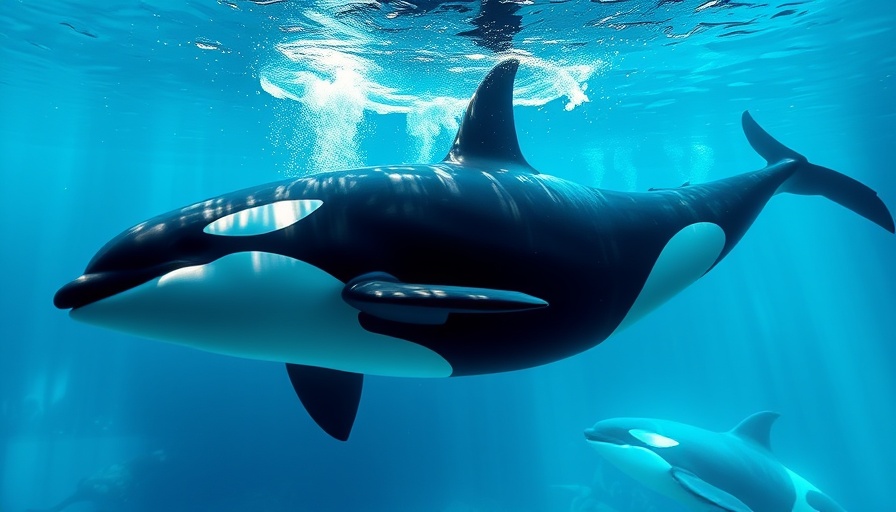
The Heartbreaking Reality of Captive Orcas
The tragic story of Kamea, an 11-year-old orca who died at SeaWorld San Antonio, underscores the plight of marine mammals trapped for entertainment. Born into captivity, Kamea lived her life in a confined space, deprived of the freedom that her species naturally deserve. Her untimely death has prompted renewed calls for change, emphasizing that these magnificent creatures are not mere entertainers but sentient beings deserving respect and dignity.
Petitioning for Change: A Step Towards Healing
As advocates for animal rights rally around Kamea’s story, a petition has emerged demanding that SeaWorld take immediate action to transfer its marine mammals to coastal sanctuaries. These sanctuaries provide a more natural and supportive environment where orcas can thrive, away from the concrete confines of aquatic entertainment parks. Signing this petition is not just a symbolic gesture; it’s a call to action—a unified plea to stop exploitation and acknowledge the intrinsic rights of marine life.
The Broader Impacts of Captivity
Captivity has dire implications for orcas. In contrast to their wild counterparts, who can live up to 90 years, many orcas in captivity suffer from health issues and die prematurely. This stark reality highlights the cruel nature of exploiting these intelligent creatures for profit. The alarming statistic that vertebrate wildlife populations have declined by 73% in the past half-century due to human activities is a clarion call for change, encompassing not only marine mammals but all wildlife facing similar threats.
Confronting the Myths of Marine Entertainment
SeaWorld and similar facilities often position themselves as conservation ambassadors, but this narrative falters when faced with the undeniable evidence of suffering. Myths suggesting that captivity educates the public or aids conservation efforts ignore the reality of animal welfare. It’s a complex issue, because while education is crucial, it should not come at the cost of the lives of intelligent and emotionally complex beings like orcas.
Where Do We Go From Here?
In light of Kamea’s death, action is imperative. Transferring orcas and other marine mammals to sanctuaries is not only a humane choice but also an opportunity to redefine how we perceive and interact with wildlife. As community members in the high desert, we might feel a strong connection to nature and wildlife conservation. It’s high time we reflect on our collective responsibility towards animals that cannot speak for themselves.
Wildlife Conservation: A Community Initiative
While the petition is one avenue for effecting change, supporting wildlife conservation efforts can take many forms. Local initiatives, such as community clean-up events or educational workshops on wildlife protection, help foster a deeper understanding and commitment to preserving the environment and its inhabitants. A donation as small as $5 can contribute to these essential efforts, allowing everyone to play a part in nurturing wildlife.
Join the Movement for Change
Your voice matters in the fight for animal rights, and signing the petition is just one way to make a difference. As a community, we have the power to influence change and shape a more compassionate future for marine life.
 Add Row
Add Row  Add
Add 




Write A Comment